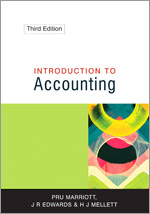
At the end the course, students will be able to:
define key terms
differentiate marketing mix from promotional mix
differentiate product positioning from product branding
- Teacher: UWAYO Pacifique

This module introduces students to the fundamental principles, processes, and tools of project management. It provides a practical framework for initiating, planning, executing, monitoring, controlling, and closing projects. Students will explore project life cycles, stakeholder management, budgeting, scheduling, risk management, and performance evaluation. Emphasis is placed on teamwork, leadership, communication, and ethical decision-making in project environments. Through practical exercises, students will learn how to manage projects effectively to achieve strategic goals and ensure successful outcomes.
- Teacher: Ananie NSENGUMUREMYI

- Teacher: Jean Paul MANIRABONA

In order for students to acquire knowledge and skills regarding food and nutrition, they will be exposed to components of a balanced meal and planning a meal for different groups of people, e.g., the sick, pregnant mothers, lactating mothers, those recovering, and others.
- Teacher: Dr. Joseph RUTAGANIRA

This course provides an in-depth understanding of the principles, processes, and practices of entrepreneurship. It equips students with the knowledge and skills necessary to identify, assess, and develop innovative business opportunities. Emphasis is placed on cultivating an entrepreneurial mindset, fostering creativity, and applying strategic thinking to transform ideas into sustainable ventures.
Through topics such as market analysis, business planning, resource mobilization, and risk management, students will gain practical insights into launching and managing successful enterprises. The course also highlights the importance of ethical conduct, innovation, and social responsibility in entrepreneurship.
- Teacher: Ananie NSENGUMUREMYI
Module Description
This module aims at introducing the students to the business of tour operations so that they can understand the commercial and other operations of the tour companies related to planning and implementing of a tour in a destination. The tour operator is a major player in the tourism industry generally and in the chain of distribution of the tourism product and it is therefore important to appreciate the role played by this stakeholder in organizing and promoting tourism business.
Learning Objectives and Outcomes
By the end of the course unit, the learners should be able;
(i) Explain the role of the tour operators within the tourism industry
(ii) Describe the products that the tour operators sell (tour package elements)
(iii) Describe the different types of tour operators
(iv) Design tour itineraries and cost the tour package
(v) To understand the tour operating environment and organizational structure
(vi) Describe different marketing strategies used by the tour operator
- Teacher: Booker SENTONGO

Description:
Travel and Tour Operations Management provides learners with an in-depth understanding of how travel agencies and tour operations function within the tourism industry. The course covers the planning, marketing, coordination, and delivery of tour packages and travel services. Students learn about the structure of travel agencies, itinerary design, costing, reservations, supplier relationships, and customer service. Emphasis is also placed on sustainable tourism practices, legal and ethical issues, and the use of technology in travel operations.
Objectives:
- Understand the organization and roles of travel and tour operators in the tourism sector.
- Plan and develop tour packages, including logistics, pricing, and promotion.
- Manage travel reservations, ticketing, and supplier coordination.
- Analyze tourism markets and develop marketing strategies for travel products.
- Apply knowledge of travel regulations, insurance, and ethical responsibilities.
- Use modern booking systems and digital tools in travel management.
- Promote sustainable and responsible tourism practices through tour design.
Learning Outcomes:
- Define key terms and functions within travel and tour operations.
- Distinguish between types of tour operators and their business models.
- Design customized travel itineraries and calculate tour costs.
- Handle bookings, cancellations, and changes in travel arrangements efficiently.
- Evaluate the importance of customer service and complaint resolution in travel businesses.
- Apply legal and ethical standards in managing domestic and international tours.
- Utilize technology for efficient travel planning, documentation, and communication.
Course Code: BLTH 2402
Credits: 10
Academic Year 2024-2025
- Teacher: content creator

The Tour Guiding Techniques course trains learners in the essential skills and professional conduct required to lead, inform, and entertain tourists. The course covers communication strategies, group management, cultural sensitivity, storytelling, emergency handling, and ethical behavior. It prepares students to plan itineraries, deliver commentary, handle client expectations, and represent destinations professionally. The course combines theory with practical fieldwork to produce confident, knowledgeable, and adaptable tour guides.
Objectives:
- Understand the role and responsibilities of a professional tour guide.
- Develop effective communication and presentation skills.
- Learn how to prepare and conduct guided tours.
- Manage group dynamics and difficult tourist behavior.
- Apply safety, first aid, and emergency response techniques.
- Foster cultural awareness and responsible tourism.
- Master ethical standards and customer care in tour guiding.
Learning Outcomes:
- Explain the functions and qualities of a successful tour guide.
- Plan and deliver engaging and informative tours.
- Adapt guiding style based on group type, size, and expectations.
- Demonstrate confident public speaking and storytelling skills.
- Handle logistical challenges, emergencies, and tourist complaints professionally.
- Promote sustainable tourism and local culture respectfully.
- Evaluate tour performance using feedback and self-assessment.
Credits: 10
Academic Year 2024-2025
- Teacher: content creator

An Entrepreneurship Development Skills course equips learners with the knowledge and abilities needed to start, manage, and grow a successful business. It covers essential topics like opportunity identification, business planning, financial management, marketing strategies, leadership, innovation, and risk management. The course emphasizes practical skills such as problem-solving, critical thinking, and decision-making, while fostering creativity, resilience, and a growth mindset. Through case studies, simulations, and real-world projects, participants gain hands-on experience and confidence to navigate entrepreneurial challenges and seize opportunities in dynamic markets.
Objectives:
- To develop an entrepreneurial mindset and innovative thinking.
- To equip learners with the skills needed to identify business opportunities and create viable business plans.
- To build competence in managing financial, marketing, and operational aspects of a business.
- To enhance leadership, communication, and strategic decision-making skills.
- To foster resilience, problem-solving abilities, and risk management strategies in business environments.
- Understand key concepts and principles of entrepreneurship and business development.
- Identify and evaluate potential business opportunities and market needs.
- Create a comprehensive business plan, including marketing, financial, and operational strategies.
- Demonstrate effective leadership, teamwork, and communication in a business setting.
- Apply critical thinking and problem-solving skills to overcome entrepreneurial challenges.
- Exhibit an understanding of ethical, legal, and social responsibilities in entrepreneurship.
Academic Year 2024-2025
Lecturer: Prof. Callixte KABERA
📧: drCallixteKabera03@gmail.com
- Teacher: content creator

This course is designed to introduce students to the history and culture of Rwanda and its people. It exposes students to Rwandan culture and heritage tourism as a product. The students are also introduced to the field of marketing of cultural and heritage tourism and examining the ways in which such a product may be sustained and developed to grow the local and national economy.
Learning Outcomes:
Having successfully completed the module, students should be able to demonstrate knowledge of:
The availale cultural attractions in Rwanda
Apply knowledge to inventory and analysis of available cultural attractions in Rwanda.
The importance of Rwandese culture in promoting tourism in Rwanda
Impacts of cultural tourism
Problems affecting tourism and possible solutions in Rwanda
Sustainable cultural tourism
- Teacher: Josephine GATSINZI

